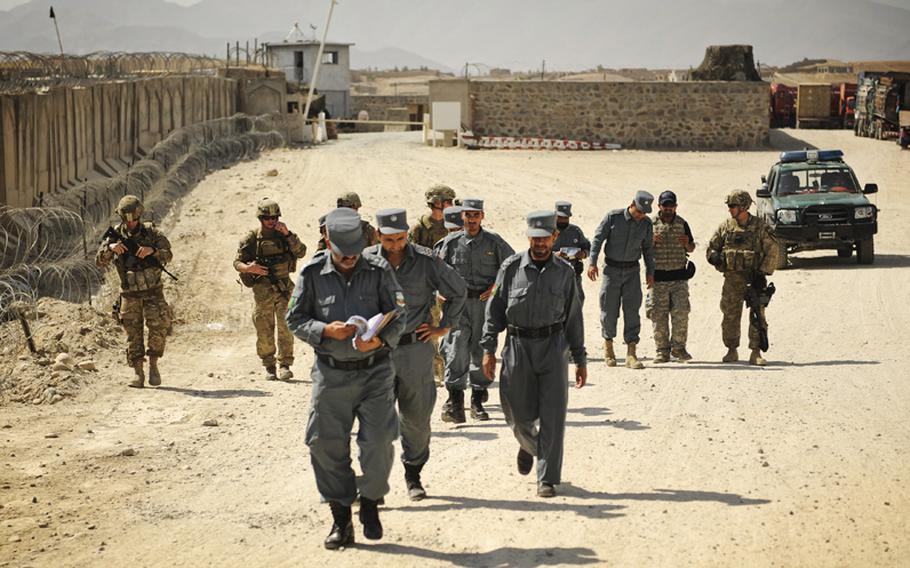
Afghan Uniformed Police lead the way on a joint patrol with coalition troops in Afghanistan's Laghman province, in September 2011. (Ryan Crane/U.S. Air Force)
WASHINGTON — Most U.S. units have returned to normal partnered operations with Afghan security forces, after “temporary adjustments” triggered by a wave of insider attacks, Defense Secretary Leon Panetta said Thursday in a Pentagon press conference.
“We will take whatever steps are necessary to protect our forces,” Panetta said. “I also want to underscore that we remain fully committed to our strategy to transition to Afghan security control.”
Panetta and Chairman of the Joint Chiefs of Staff Gen. Martin Dempsey stressed that the Afghan war is on track and that, in Dempsey’s words, “The Taliban is clearly trying to split us apart, but it won’t work.”
Earlier this month, International Security Assistance Force officials issued rules requiring regional commanders to approve all partnered patrols — approvals that would generally fall to company or battalion commanders.
Dempsey said the rules “didn’t restrict anything,” but rather told subordinate commands to assess their own situations for security.
“We needed buy-in from our Afghan partners that they take this threat as seriously as we do,” he said.
Dempsey, recently back from a trip to Afghanistan, said he believes Afghans do take the threat very seriously.
While he didn’t have specific numbers available, Dempsey said nearly all partnered operations had resumed.
Panetta also noted that all 33,000 surge troops that President Obama ordered into Afghanistan in December 2009 have returned, but that their work allowed the coalition to “turn a very important corner.”
In mid-2009, Panetta said, “Afghanistan faced a real prospect that the Taliban would overtake the country. ... I think there was a real risk that the mission in Afghanistan might very well fail.”
But now, he said, the situation is “considerably different and improved.”
Panetta also acknowledged that the attack this month on the U.S. consulate in Benghazi, Libya, was the work of terrorists, but declined to say who he believes carried it out.
“What terrorists were involved still remains to be determined [by an investigation], he said.
Regardless of who was responsible, he said, “We are not going to let people who deliberately attack and kill our people get away with it.”
hladj@stripes.osd.milTwitter: @jhlad